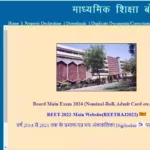So you’ve aced your Master’s degree and research is calling your name. But funding your Ph.D. journey can feel like a daunting mountain to climb. Fear not, young scholar! The world of Junior Research Fellowships (JRF) in India offers a fantastic launchpad for your research aspirations. Let’s delve into the nitty-gritty of JRFs and equip you to snag this coveted opportunity.
Understanding the JRF Landscape
A JRF is a financial grant awarded by various government agencies in India to students pursuing Ph.D. programs. It acts as a vital support system, providing a monthly stipend and often additional research contingencies. Think of it as your fuel to power your research engine for the initial stages of your Ph.D.
There are two main ways to qualify for a JRF:
- National Eligibility Test (NET): This national-level exam, conducted by the University Grants Commission (UGC) and Council of Scientific and Industrial Research (CSIR), assesses your subject knowledge and research aptitude. Qualifying in NET makes you eligible to apply for JRF positions at universities and research institutions.
- Entrance Exams Conducted by Specific Institutions: Some universities and research institutes hold their own entrance exams for awarding JRFs. These exams might be specific to their research areas or programs.
Remember, qualifying exams are just the first step. Once you’ve cleared them, universities and institutes will shortlist candidates based on their academic performance, research proposal, and interview.
Types of JRF Programs in India
The Indian research landscape offers a diverse range of JRF programs, each catering to specific fields and funding agencies. Here’s a quick peek at some of the prominent ones:
- UGC-CSIR NET JRF: This is the most popular JRF scheme, covering a wide spectrum of subjects in science, humanities, and social sciences.
- ICMR JRF: The Indian Council of Medical Research (ICMR) offers JRFs specifically for Ph.D. programs in medical research fields.
- Department of Science and Technology (DST) INSPIRE Fellowship: This program targets talented students pursuing research in Science and Technology disciplines.
- JRFs offered by PSUs and Private Institutions: Several Public Sector Undertakings (PSUs) and private research institutions offer JRFs aligned with their specific research areas.
Before diving into the application process, it’s crucial to research JRF programs that align with your research interests and chosen field.
How to Ace Your JRF Application
Preparation is key to conquering the JRF challenge. Here are some effective strategies to boost your application:
- Master the Syllabus: Deep-dive into the syllabus of the qualifying exam you’ll be taking. Familiarize yourself with the exam format, weightage of different topics, and recommended reference materials.
- Sharpen Your Research Skills: Research is the heart and soul of a Ph.D. Develop strong research skills by reading academic papers, attending research seminars, and potentially assisting ongoing research projects.
- Craft a Compelling Research Proposal: This is your chance to showcase your research acumen. Develop a clear, concise, and well-structured proposal outlining your research topic, methodology, expected outcomes, and potential impact.
- Practice Makes Perfect: Prepare for the interview by simulating mock interviews with professors or peers. This will help you articulate your research plans confidently and address potential questions.
Beyond the JRF: A Rewarding Research Journey
A JRF fellowship opens doors to a world of possibilities. You’ll gain valuable research experience, collaborate with leading researchers, and potentially publish your work in academic journals. Here are some additional tips to make the most of your JRF experience:
- Network Actively: Build strong relationships with your guide, professors, and fellow researchers. These connections can be invaluable resources throughout your Ph.D. journey and beyond.
- Present Your Research: Participate in research conferences and seminars to showcase your work and gather valuable feedback from the academic community.
- Stay Updated in Your Field: The research world is constantly evolving. Keep yourself abreast of the latest advancements through academic journals, conferences, and online resources.
Remember, a JRF fellowship is not just financial aid; it’s a springboard for a fulfilling research career. With dedication, preparation, and a thirst for knowledge, you can conquer the JRF challenge and embark on an enriching journey of discovery. So, put on your thinking cap, delve into research, and get ready to make your mark on the academic world!




